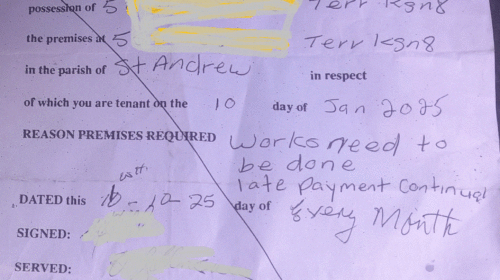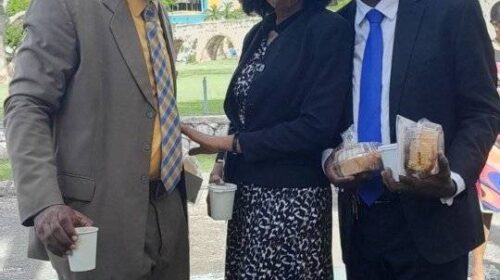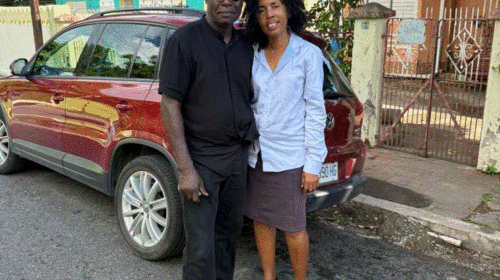The directorial effort of Giancarlo Esposito has come at the back end of a remarkable career.
That career in film, television and theatre, spans several decades, and has meant Esposito is acknowledged as one of the leading black actors in Hollywood.
His new work has seen him go from actor to take his place behind the cameras as producer-director of a feature film from his brand new production company Quiet Hand Films.
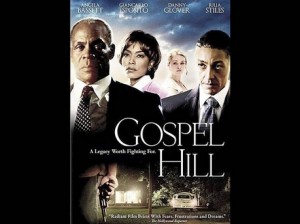
Gospel Hill stars Angela Bassett, Samuel L. Jackson and Esposito himself.
The plot surrounds a former sheriff of a southern town dealing with past sins, and a former civil-rights worker, withdrawn since the martyrdom of his brother 30 years before, who both confront a threat to their town.
Half African-American, half Italian, Esposito, had an opera singer for a mother while his father was a stagehand and carpenter from Naples, Italy.
Esposito was born while his mother was doing a nightclub gig on a split bill with Josephine Baker in Copenhagen, Denmark and lived in Europe, New York, and Cleveland, until he and his family moved to Manhattan when he was six.
At age eight, Esposito played a slave child in a film starring Shirley Jones, but later rose to global fame after his iconic role as the bug-eyed militant who starts the street uprising in Spike Lee’s classic Do The Right Thing. His relationship with Lee led to him starring in six of Spike Lee’s ‘joints,’ including School Daze, Malcolm X and Mo’ Better Blues.
Other films in which Esposito’s presence was noticed included Waiting To Exhale with Whitney Houston and Angela Bassett, King of New York with Christopher Walken, and the role of Muhammad Ali’s father in Ali.
On his many appearances on the small screen, Esposito is known for his portrayal of FBI agent Mike Giardello on the TV crime drama Homicide: Life on the Street, a role that reflected both his black and Italian heritage and which he played from 1998 until the series’ cancellation.
Other TV credits include NYPD Blue, Law & Order, The Practice, New York Undercover, and Fallen Angels: Fearless.
Jamaica relations
Jamaicans will remember him from the locally-produced feature film Kla$h, the 1984 dancehall movie co-starring Jasmine Guy, Carl Bradshaw, Stafford Ashani and with performances by Shabba Ranks, Ice and Dancehall Queen Carlene.
A consumate professional, Esposito’s name crops up frequently in films, TV series and stage plays. But it is his role in the 2011 ABC TV series Breaking Bad that has brought him a new level of stardom and recognition for his superb acting skills. As the LA Times reports, “In Breaking Bad, Esposito is a man of few words, letting his cold eyes and taut expressions speak for him as Gus Fring, the deceptively mild-mannered owner of a fast-food chicken chain who is actually the mastermind of a meth distribution ring. Esposito’s complex portrayal of Gus has been a breakthrough role for the actor while bringing renewed acclaim to one of TV’s elite dramas.”
Below is a brief question and answer session with The Reggae Film Festival 2011 posing.
RFF: Has acting given you enough fame and money?
ESPOSITO: Accumulating money has never been a real goal for me. Rather, I think about how to make every moment of my life mean something. What’s been my barometer for success is my creative and spiritual growth – I measure my success by the quality of my work. Last year, I sat down and re-examined things. I asked myself if I wanted to do anything, and everything just to get a lot of money. I decided I’d rather work and collaborate with people at the top of their craft. And my dream has come true. In one film I worked with four Academy Award winners: Director Robert Benton, Susan Sarandon, Gene Hackman, and Paul Newman.”
RFF: What made you become an actor?
ESPOSITO: I started in the acting business at age eight, so I feel it’s my experience and social skills for example, how to be charismatic, how not to lose your temper – that have helped me the most to succeed. But I did develop a plan: I wanted to work with good people who had a passion for what they did. Still, at age 17, I made the decision to study the technical part of the business as well. I got a two-year degree in radio and television communication at Elizabeth Seton College in Yonkers, New York. I figured if I never made it as an actor, I could go to Alaska, be a cameraman, and collect a pay cheque. It would be something to fall back on, but something I still enjoyed.”
RFF: When did you first feel you were a success?
ESPOSITIO: I first felt successful when I was 13 and in a show called Seesaw. I came off stage and heard the applause of the theatre audience and felt a sense of accomplishment. Around that time, my role model for success was Burt Lancaster. He was one of the first actors in Hollywood to start his own production company, and I respected him because he created something he believed in. Nowadays, I look to spiritual people, such as Mother Teresa and the Dalai Lama, since I’m always asking myself, “What do I have to give?”
RFF: What advice can you give upcoming actors?
ESPOSITO: My advice for achieving success is to make a career choice that reflects your passion. Then work your craft a little bit each day, even if someone’s not paying you to do it. Try to balance your social life with your educational (or professional) life, and have patience.
Author Profile
- ... author, qualified & experienced in journalism, creative writing, editing, the arts, art critique, paralegal, photography, teaching, research, event planning, motivational speaking, workshops for children and adults, visual arts etc. Click here for contact form. ...or email me here
Latest entries
 Raw and DirectFebruary 15, 2026Ways to improve Jamaica: 71-80: the law
Raw and DirectFebruary 15, 2026Ways to improve Jamaica: 71-80: the law AdvertorialFebruary 11, 2026Let’s build Jamaica, lets love Jamaica
AdvertorialFebruary 11, 2026Let’s build Jamaica, lets love Jamaica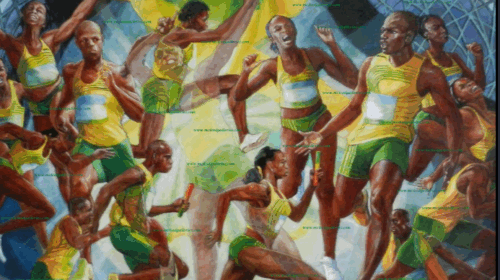 AdvertorialJanuary 30, 2026Support Jamaica Art on www.antheamcgibbon.com
AdvertorialJanuary 30, 2026Support Jamaica Art on www.antheamcgibbon.com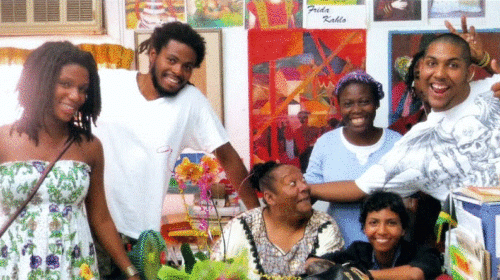 Jamaica Art ScopeJanuary 28, 2026Hope ‘Sweetie’ Wheeler hosts dynamic art studio
Jamaica Art ScopeJanuary 28, 2026Hope ‘Sweetie’ Wheeler hosts dynamic art studio







